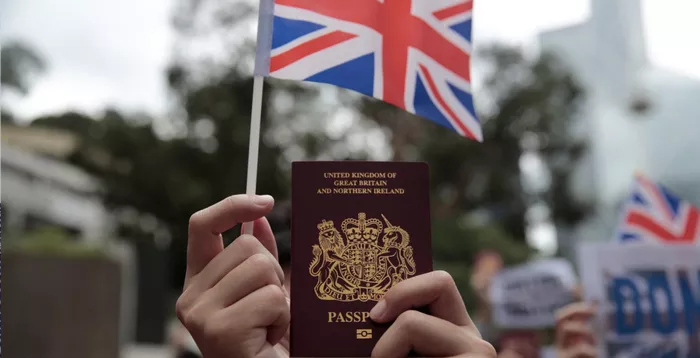In an increasingly interconnected world, the United Kingdom remains an attractive destination for individuals seeking employment opportunities. However, navigating the complexities of UK immigration law can be daunting, particularly when it comes to obtaining a work visa. Whether you are a skilled professional, an entrepreneur, or a seasonal worker, understanding the requirements for a UK work visa is crucial for a successful application process.
Types of UK Work Visas
Before delving into the specific requirements, it is essential to grasp the different types of work visas available in the UK. The category of visa you apply for will depend on various factors, including your occupation, skills, and the nature of your employment. Here are some of the primary types of UK work visas:
1. Tier 2 (General) Visa: Designed for skilled workers with a job offer from a UK employer that holds a valid Tier 2 sponsorship license.
2. Tier 1 (Entrepreneur) Visa: Aimed at individuals looking to establish or take over a business in the UK.
3. Tier 5 (Temporary Worker) Visa: Intended for individuals coming to the UK for temporary work, including charity workers, creative artists, and sportspeople.
4. Intra-Company Transfer (ICT) Visa: Allows multinational companies to transfer employees from overseas branches to the UK.
Common Requirements for UK Work Visas
While specific requirements may vary depending on the type of visa you apply for, several general prerequisites apply to most UK work visas:
1. Job Offer from a UK Employer: To qualify for a UK work visa, you typically need a job offer from a UK employer. The employer may also need to provide a certificate of sponsorship, particularly for Tier 2 visas.
2. Sponsorship: For many types of UK work visas, including Tier 2 and Tier 5 visas, your employer must be a licensed sponsor. They will need to provide you with a sponsorship certificate, confirming that they are sponsoring your visa application.
3. English Language Proficiency: Unless exempt, you will likely need to demonstrate proficiency in the English language by passing an approved English language test. This requirement ensures that you can effectively communicate in the workplace and integrate into British society.
4. Proof of Adequate Funds: Depending on the visa category, you may need to show that you have enough money to support yourself and any dependents during your stay in the UK. This requirement aims to prevent individuals from becoming a burden on the UK’s public services.
5. Tuberculosis Test (if applicable): Individuals applying for a visa for longer than six months from certain countries may need to undergo a tuberculosis (TB) test.
6. Criminal Record Check: In some cases, you may be required to provide a criminal record certificate from your country of residence or any other country where you have lived for more than 12 months in the past ten years.
7. Healthcare Surcharge: Most applicants for UK work visas are required to pay a healthcare surcharge as part of their application. This surcharge grants access to the UK’s National Health Service (NHS) during your stay.
Specific Requirements for Different Visa Categories
In addition to the common requirements outlined above, each type of UK work visa has its own set of specific criteria that applicants must meet:
1. Tier 2 (General) Visa:
Job must be on the Skilled Occupation List.
Minimum salary threshold.
Genuine vacancy with a genuine employer.
Maintenance funds if switching from certain visa categories.
2. Tier 1 (Entrepreneur) Visa:
Access to a minimum investment fund.
Business plan outlining your proposed business venture.
English language requirement.
Maintenance funds.
3. Tier 5 (Temporary Worker) Visa:
Proof of sponsorship from a licensed employer.
Confirmation of the type of work you will be doing and the conditions of your employment.
English language requirement (if applicable).
4. Intra-Company Transfer (ICT) Visa:
Employed by a multinational company with a presence in the UK.
Length of employment and position within the company.
Confirmation of sponsorship from the overseas employer.
Navigating the Application Process
Once you have determined the type of UK work visa that best suits your circumstances and have ensured that you meet all the necessary requirements, the next step is to navigate the application process. Here are some tips to help you through this process:
1. Gather Documentation: Collect all the required documents, including your passport, proof of sponsorship, English language test results, and any other supporting evidence.
2. Complete the Application Form: Fill out the online visa application form accurately and truthfully, ensuring that all information provided is correct and up-to-date.
3. Pay the Application Fee: Pay the required visa application fee and healthcare surcharge, if applicable. Keep proof of payment for your records.
4. Schedule Biometric Appointment (if required): Depending on your nationality, you may need to schedule an appointment to provide biometric information, including fingerprints and a photograph, at a visa application center.
5. Attend Visa Interview (if required): Some applicants may be required to attend an interview as part of the visa application process. Prepare thoroughly and be ready to answer questions about your background, employment history, and reasons for wanting to work in the UK.
6. Wait for a Decision: After submitting your application and attending any required appointments or interviews, await a decision on your visa application. Processing times can vary depending on the type of visa and other factors.
7. Plan Your Arrival: If your visa application is successful, start planning your arrival in the UK. Arrange accommodation, transportation, and any other logistical details to ensure a smooth transition.
Conclusion
Obtaining a UK work visa can open up exciting opportunities for career advancement, business ventures, and personal growth. By understanding the specific requirements for your chosen visa category and following the necessary steps outlined in the application process, you can increase your chances of success. Remember to plan ahead, gather all required documentation, and seek professional advice if needed to navigate the complexities of UK immigration law effectively. With careful preparation and perseverance, you can embark on a fulfilling journey in the United Kingdom.


